Harnessing the Genome: A Summary of Dr. Julian Savulescu’s Talk
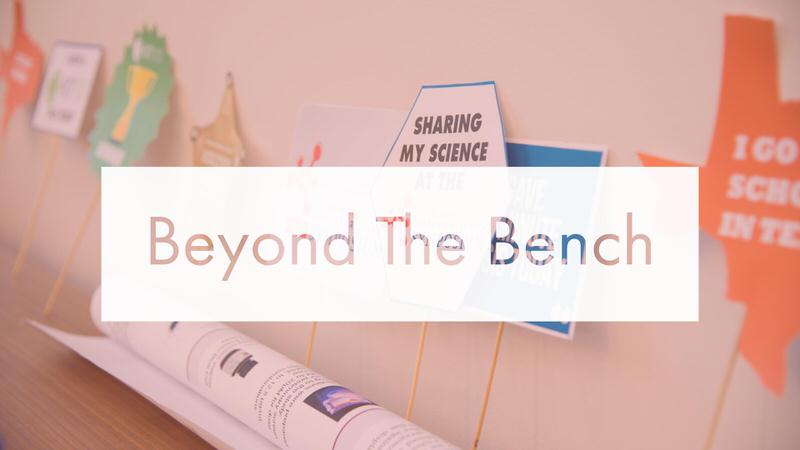
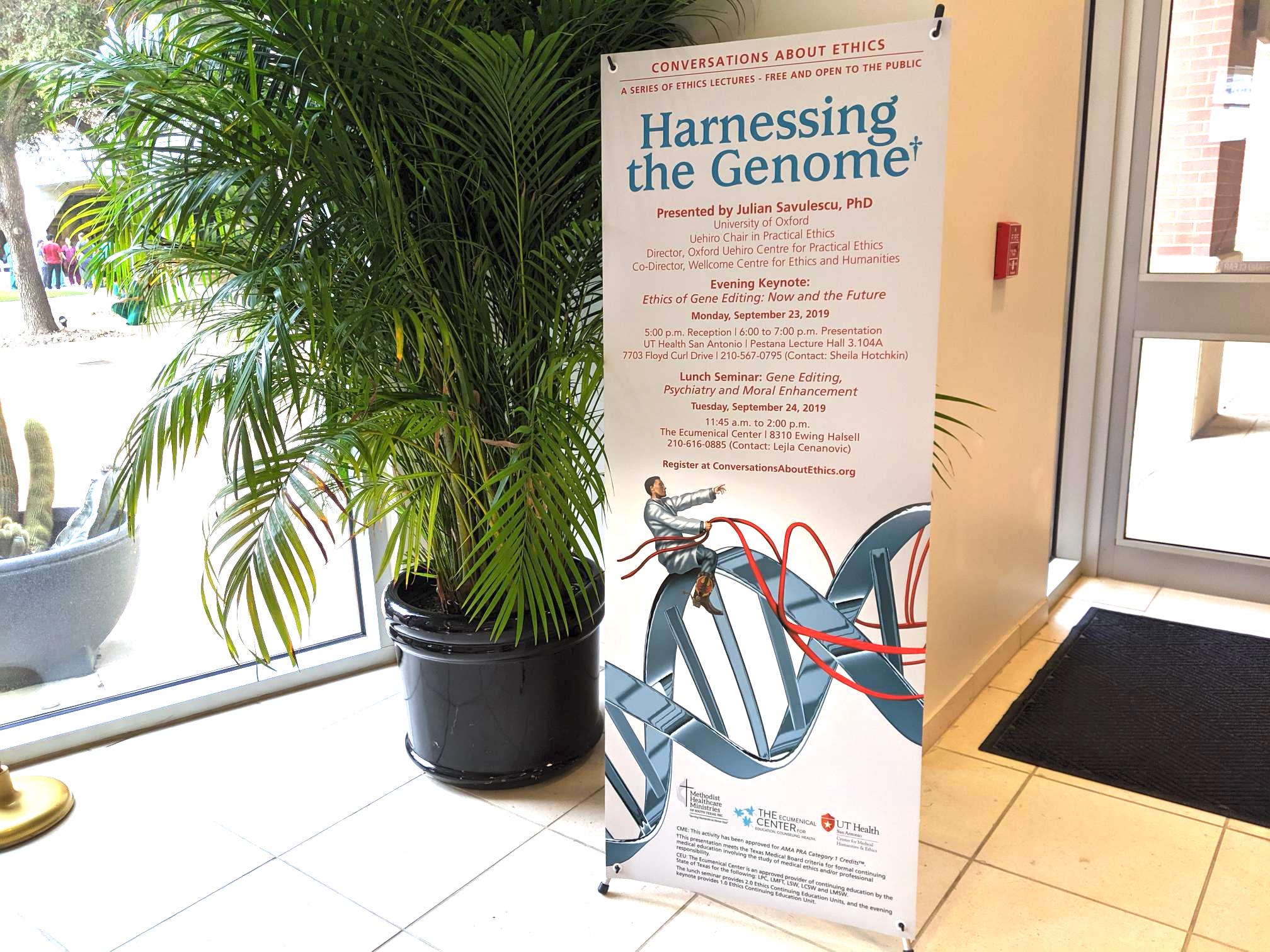 Humans have been practicing gene editing for centuries. We have been modifying everything for as long as we have been on this planet. Fluffy the family Shih Tzu, was the product of choosing mutations we liked from wolves and selectively breeding them. We selected the characteristics we liked and through our own version of genetic selection (not nature’s), breeds of dogs arose. Humans did not stop there, we have selected livestock and crops that better suit our wants. We started primitively compared to our quicker modern techniques. We have moved from selective breeding to various gene modification techniques to the more precise CRISPR/Cas-9 ‘gene editing’.
Humans have been practicing gene editing for centuries. We have been modifying everything for as long as we have been on this planet. Fluffy the family Shih Tzu, was the product of choosing mutations we liked from wolves and selectively breeding them. We selected the characteristics we liked and through our own version of genetic selection (not nature’s), breeds of dogs arose. Humans did not stop there, we have selected livestock and crops that better suit our wants. We started primitively compared to our quicker modern techniques. We have moved from selective breeding to various gene modification techniques to the more precise CRISPR/Cas-9 ‘gene editing’.
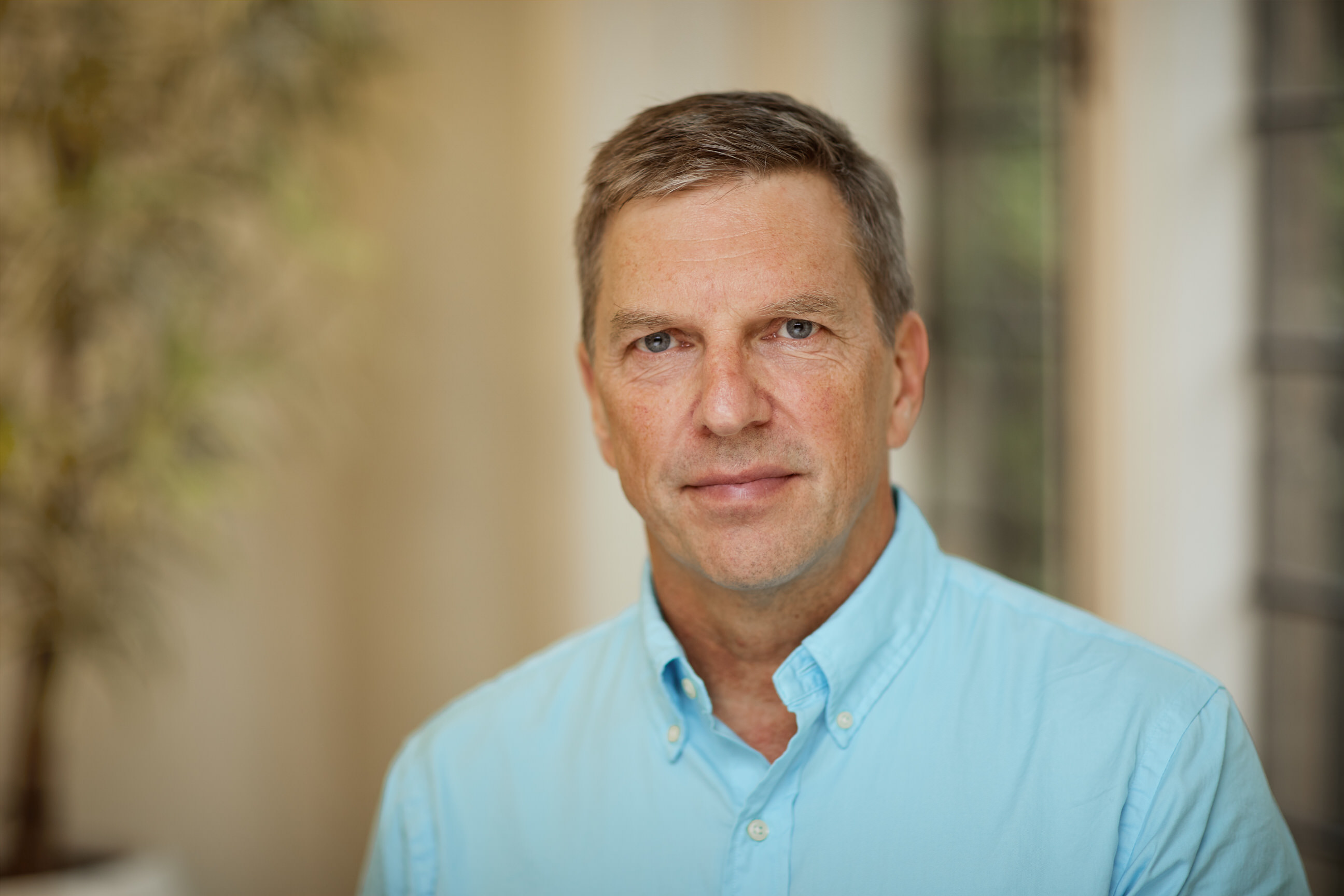
Julian Savulesco
It has always been part of human nature to do better for ourselves and our children. Dr. Julian Savulescu approaches ethics in gene editing in this way. He poses the idea that we have never been able to stop technology that has made humans and our society better. Instead, we have the moral obligation to ensure the technology is developed and used with good intentions. He uses the He Jiankui twins case as evidence of this. He Jiankui, with permission from the parents, altered the genes in human embryos making the twins resistant to HIV infection. This was important to the twins parents, because the father is allegedly HIV positive. Dr. Savulescu acknowledges that it is not poor ethics to want to protect your children from disease. What is poor ethics is how and to what extent. Dr. Savulescu states that the gene, CCR5, that was mutated in the twins makes them more susceptible to West Nile Virus and to unknown future consequences. It is monstrous to expose a normal healthy embryo to gene editing risks for no clear benefit. HIV is a preventable and treatable disease. Dr. Savulescu emphasizes starting with the lowest risk group, such as a lethal disease like Tay-Sachs, and building from there. He also recommends learning as much as possible about a gene before using it for gene editing therapy, and one day, genetic enhancement.
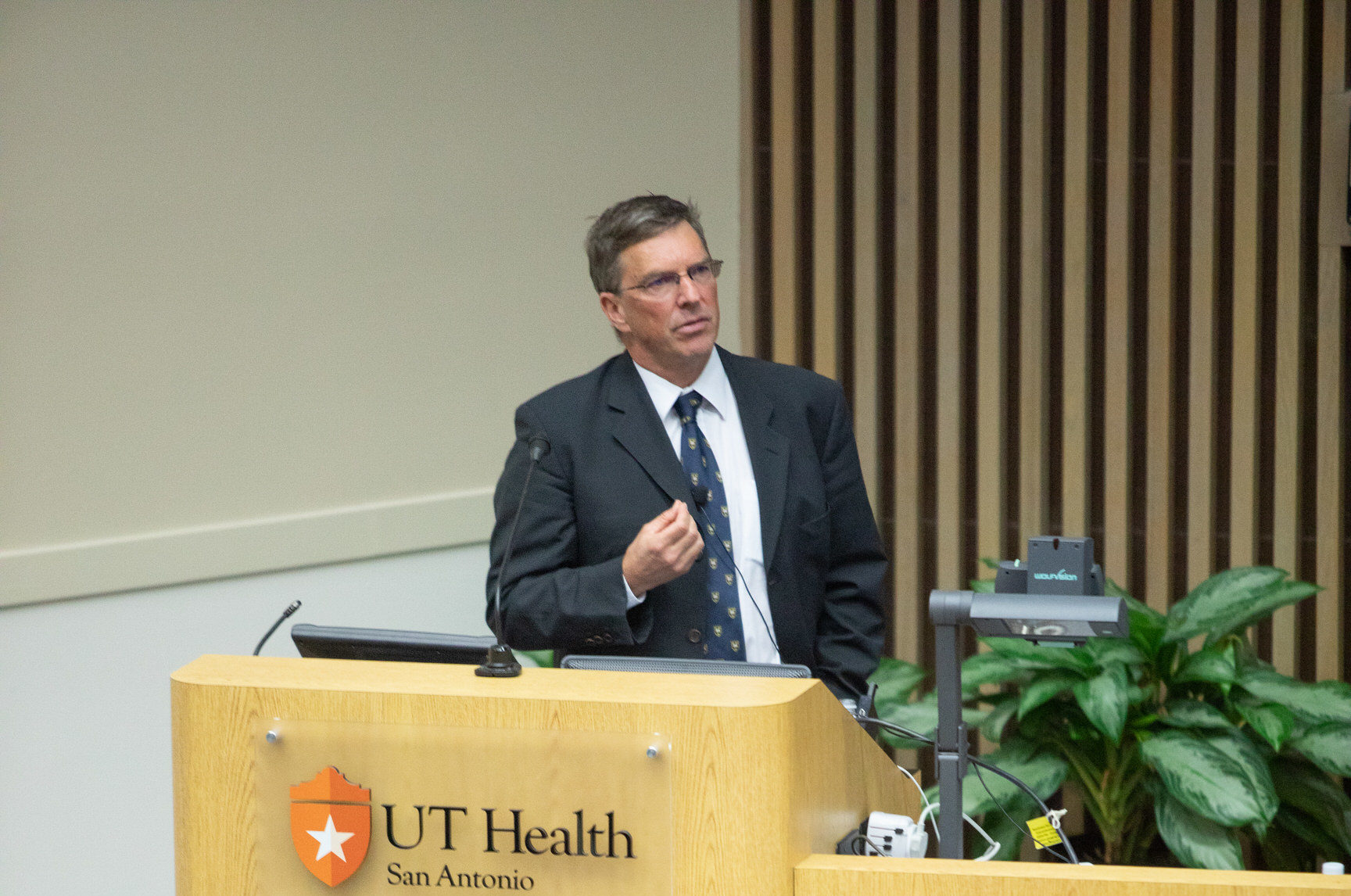 Gene editing therapy will ultimately be a tool used to enhance humans. Dr. Savulescu takes the view point not of stopping the use of gene therapy for enhancement. There have been calls for moratoriums on gene editing therapy. To only allow its use to cure disease and not for enhancement. How do we define a bad trait deserving of treatment versus an enhancement? Essentially we can’t. Dr. Savulescu asks what is really the difference when at the core both enhancement and treatment are aiming to improve lives. He reminds us that we innately do this all of the time, make ourselves better. Ritalin is provided to children that need impulse control to function in our society. IQ is improved by adding iodized salt to the diet. Cognitive function is enhanced by diet and exercise. We enhance our lives on a daily basis and we accept it. All of these changes ultimately affect our biology through epigenetic modifications.
Gene editing therapy will ultimately be a tool used to enhance humans. Dr. Savulescu takes the view point not of stopping the use of gene therapy for enhancement. There have been calls for moratoriums on gene editing therapy. To only allow its use to cure disease and not for enhancement. How do we define a bad trait deserving of treatment versus an enhancement? Essentially we can’t. Dr. Savulescu asks what is really the difference when at the core both enhancement and treatment are aiming to improve lives. He reminds us that we innately do this all of the time, make ourselves better. Ritalin is provided to children that need impulse control to function in our society. IQ is improved by adding iodized salt to the diet. Cognitive function is enhanced by diet and exercise. We enhance our lives on a daily basis and we accept it. All of these changes ultimately affect our biology through epigenetic modifications.
What makes any of this different from changing the genome? Besides genetic screening for debilitating disorders is already in practice. This too changes the human genetic inheritance.
If we are already selecting for traits to improve our children by preventing disease what stops us from creating designer babies? There is nothing that will stop the progress of technology that improves lives. Dr. Savulescu remarks that China is already looking at gene editing to make their population more intelligent. As we know, higher IQ-ed individuals contribute more to economic output. Curing HIV in Africa is not the only motivator for China (or any country) to look into gene editing programs. Eugenics and the practices of Nazi Germany must be enough for level headed scientists to stop genetic engineering. It would be, if the eugenics we are already practicing were the same as that of a gone-by Germany. Dr. Savulescu contends that pre-screening for genetic disorders is already a form of eugenics. The practice of current and future genetic engineering must never come from a place of racism and hate to be set apart from what we traditionally think of as eugenics. To improve everyones well-being, altering the genome will be in how we use it. It must be voluntary, safe and available to everyone.
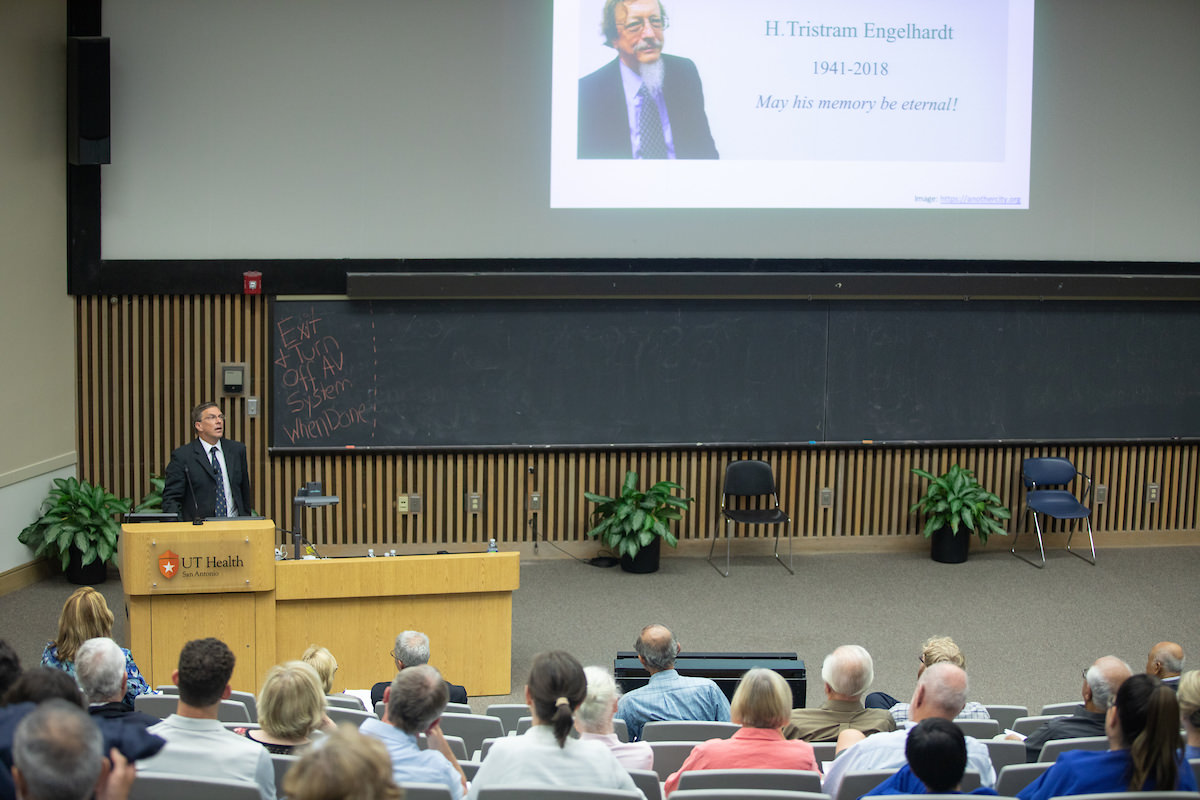
Again, Dr. Savulescu brings up what we already know. Social inequality and the idea that only the wealthy can afford to enhance themselves, becoming the genetic elite. This is also something we already do, access to education, genetic pre-screening, and even salt are made available to those who can afford it. We need to ask ourselves is this an unavoidable truth to human nature or do we have control over how we determine equality? Ultimately Dr. Savulescu summarizes harnessing the genome with the statement “Nature already made inequalities. Whether gene editing will level the playing field is up to how we use it.”
 This article was written by Desirée Denman, a graduate student in the M.S. in Infection and Immunology program at UT Health San Antonio based on the recent Harnessing the Genome talk by Dr. Julian Savulescu, Uehiro Chair in Practical Ethics, Director, Oxford Uehiro Center for Practical Ethics, and Director, Wellcome Centre for Ethics and Humanities. This lecture was sponsored by the Center for Medical Humanities & Ethics at UT Health San Antonio.
This article was written by Desirée Denman, a graduate student in the M.S. in Infection and Immunology program at UT Health San Antonio based on the recent Harnessing the Genome talk by Dr. Julian Savulescu, Uehiro Chair in Practical Ethics, Director, Oxford Uehiro Center for Practical Ethics, and Director, Wellcome Centre for Ethics and Humanities. This lecture was sponsored by the Center for Medical Humanities & Ethics at UT Health San Antonio.
